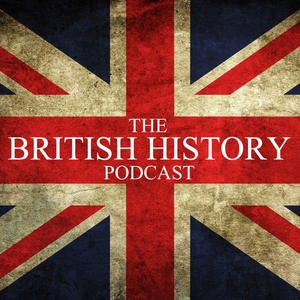
Professional Team Sport Leagues in Australia IV
10/03/12 • 61 min
In this, the final part of three on 'Professional Team Sports Leagues in Australia', we take the modelling from earlier and use it to draw conclusions about what we would expect to find about competitive balance in the AFL over the history of the competition when we look at the figures. We also compare competitive balance in the AFL to the Major Leagues (MLB, NFL and NBA) on one hand, and other pro-sports leagues in Australia (NRL and NBL) on the other hand. The results are mixed - some of these comparisons tell us exactly what we would expect to see, while a few others tell us something contrary to expectations. Some additional figures on the general economic health of the AFL are also discussed.
Copyright 2012 La Trobe University, all rights reserved. Contact for permissions.
In this, the final part of three on 'Professional Team Sports Leagues in Australia', we take the modelling from earlier and use it to draw conclusions about what we would expect to find about competitive balance in the AFL over the history of the competition when we look at the figures. We also compare competitive balance in the AFL to the Major Leagues (MLB, NFL and NBA) on one hand, and other pro-sports leagues in Australia (NRL and NBL) on the other hand. The results are mixed - some of these comparisons tell us exactly what we would expect to see, while a few others tell us something contrary to expectations. Some additional figures on the general economic health of the AFL are also discussed.
Copyright 2012 La Trobe University, all rights reserved. Contact for permissions.
Previous Episode

Professional Team Sport Leagues in Australia III
This lecture, the second of three on 'Professional Team Sports Leagues in Australia', follows on from the previous one insofar that the 'unrestricted' model under the assumption of win-max (AFL) [and compared to profit-max (Major Leagues)], is now 'restricted' with common past and present policies used to ensure competitive balance. These policies include, draft/zoning/reserve clause; salary cap (and minimum salary); gate-revenue sharing; and league-revenue sharing. As we see, the conclusions on the effectiveness (or otherwise) of these policies varies greatly depending on the scenario involved.
Copyright 2012 La Trobe University, all rights reserved. Contact for permissions.
Next Episode

Professional Team Sport Leagues in Australia V
In this, the final part of three on 'Professional Team Sports Leagues in Australia', we take the modelling from earlier and use it to draw conclusions about what we would expect to find about competitive balance in the AFL over the history of the competition when we look at the figures. We also compare competitive balance in the AFL to the Major Leagues (MLB, NFL and NBA) on one hand, and other pro-sports leagues in Australia (NRL and NBL) on the other hand. The results are mixed - some of these comparisons tell us exactly what we would expect to see, while a few others tell us something contrary to expectations. Some additional figures on the general economic health of the AFL are also discussed.
Copyright 2012 La Trobe University, all rights reserved. Contact for permissions.
If you like this episode you’ll love
Episode Comments
Generate a badge
Get a badge for your website that links back to this episode
<a href="https://goodpods.com/podcasts/sports-economics-653942/professional-team-sport-leagues-in-australia-iv-85992471"> <img src="https://storage.googleapis.com/goodpods-images-bucket/badges/generic-badge-1.svg" alt="listen to professional team sport leagues in australia iv on goodpods" style="width: 225px" /> </a>
Copy




